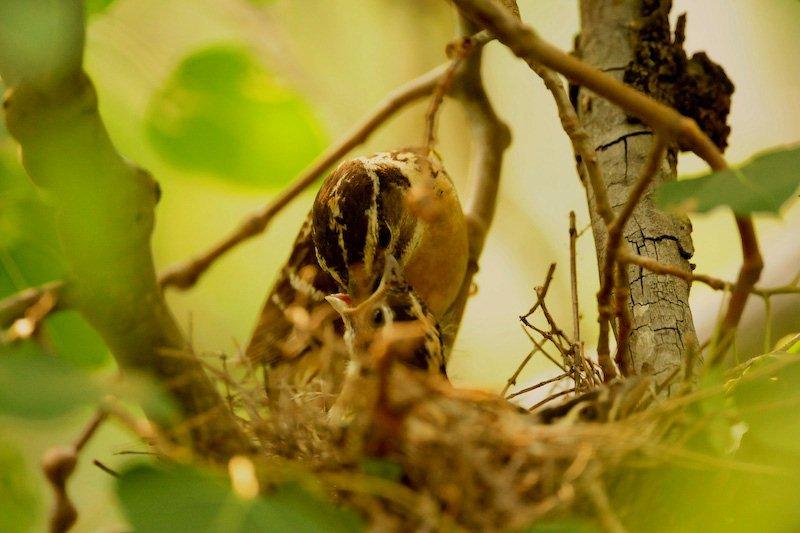












Observers: Donna Willey
Email: basina@verizon.net
Date:
07/24/2008
Time: 11:42 PM -0400
When I close my eyes I see them and the orange of the males breast seems to have permanently lodged its' striking clolors on the undersides of my eyelids. This spring they came around the first of May and the old pair came and a new male and along with the new male was a rose-breasted grosbeak also. Just a few sightings of him but others saw him around Mammoth. Maybe more than one RBGR, we don't know. Finally another female showed up and both pairs of black-headed grosbeaks made their nests overhanging the human trail along the creek; one in a particular birdy alder was chosen and the other pair, the new pair, nested in a bushy aspen tree in the shade, near the creek, overhanging the trail. This has been an incredible spring for nesting birds, further down the bank, nested a pair of yellow warblers and the MacGillivray's were nesting nearby as well as robins, warbling vireos and house wrens in their hollowed out woodpecker cavities. As a birder photographer I cannot always get photos of the nestlings or the nest for it just depends where the nest is placed; how well concealed. These birds have many predators and I will not, for any reason disturb a nesting site. But once in awhile, the bird in question builds its' nest so concealed and yet so well placed for the camera's eye, and that is what the young pair of grosbeaks did. They invited me in and gave me an intimate look at their life for approximately 4 weeks I watched quietly as they incubated, sharing the incubation duties like few other passerines on this stream do. The female builds the nest but both female and male sit on the eggs and when the eggs hatch and the chicks emerge both parents feed the chicks and sometimes I think the male actually does more of the feeding during the day. At night the female stays at the nest site and warms the eggs and the chicks with her body. The male is always near and sings at the nest and sings to his mate and sings to his chicks. I hope you enjoy a birds eye view of their reproductive love.












